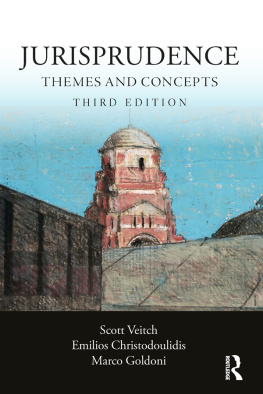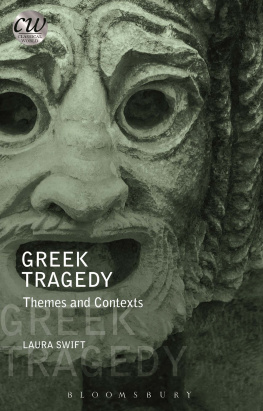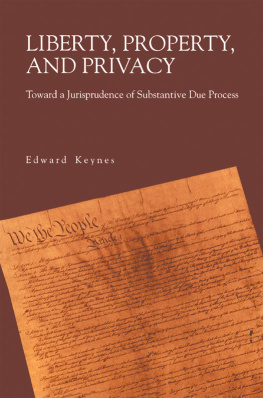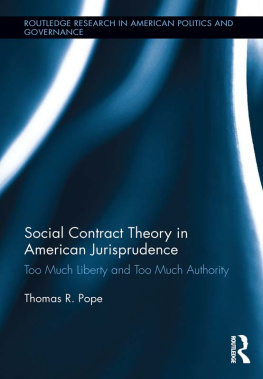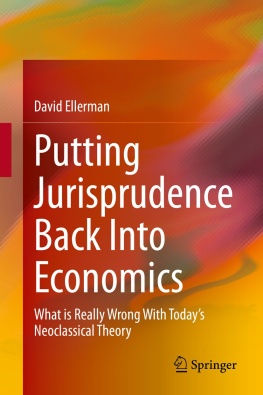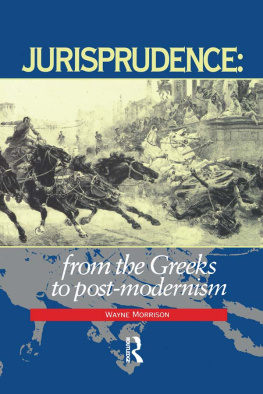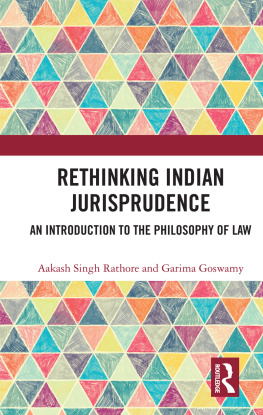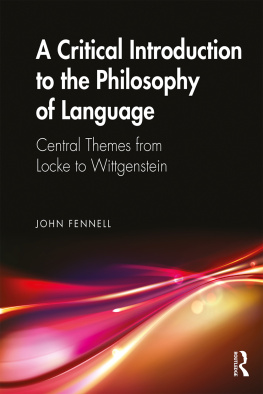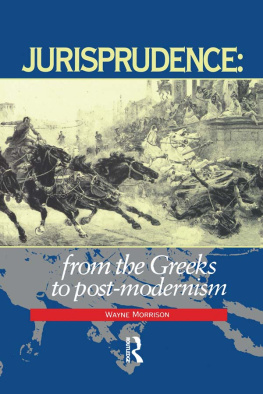One way to understand the advent and development of modern law, as was analysed in , is as a process of differentiation, where secular authority was separated from religious authority, and where the principles of national state jurisdiction ensured that (increasingly) democratic legislatures enacted, and State bureaucracies implemented, positive legislation over the territories of nation-states. The idea of differentiation denotes the gradual emergence and establishment of separate normative orders, of morality, law, politics, religion, etc. The separation meant that religious doctrine was no longer a source of law, or individual faith a criterion for holding public office of participating in the public sphere, but that faith could be seen as a private matter (freedom of religion). It meant that comprehensive world-views gradually gave way to a relative plurality of value commitments, recognised and protected as a matter of individual right. And that justice came increasingly to withdraw to the formal side of social interchange (equality of all before the law) rather than embodying any comprehensive doctrine to be enforced through the law.
At a conceptual level, these developments raise a general concern about the relationship between law and other kinds of values. Can law be understood without including any necessary reference to those values that it may seem desirable for law to embody, notably morality and justice? Is it possible, in other words, and is it desirable, to identify valid law without reference to other kinds of normative or evaluative standards?
The tradition of legal positivism gives an affirmative answer to these questions. Legal positivism emerges as a distinct approach to legal analysis in the work of Jeremy Bentham and John Austin, English jurists writing in the late eighteenth and early nineteenth centuries, and it received great impetus in the work of two twentieth-century legal philosophers, Hans Kelsen and H.L.A. Hart. These authors differ in their approaches, yet they all see as important the need to identify valid law without reference to questions of moral values. They argue that what the law is, and what it ought to be, are different questions and require different kinds of answer. As Austin famously put it, [t]he existence of law is one thing, its merit and demerit another. Whether it be or be not is one enquiry; whether it be or be not conformable to an assumed standard, is a different enquiry (Austin 1954/1832, p 157).
There is in much jurisprudential writing a problematic tendency to abstract such statements and the dilemmas behind them from the historical contexts within which they arose. This impoverishes our understanding of these debates and consequently the complexity of the answers. Legal positivism arose under specific historical conditions as a response to highly charged contestations of political authority. For example, Hobbess profound statement of sovereignty as juris-diction (i.e., the Leviathans absolute power to pronounce the law for the subjects), a high moment of positivism , is published in the midst of political turmoil in England soon after the execution of Charles I. Lockes theory of the natural right of property both inspired and found its way into the constitutional thinking of the protagonists of the American revolution, which asserted the rights of American property owners against the juris-diction of the British Crown. The Reformation itself had had a massive impact on the tradition of natural law thinking as developed from Aristotle through the writings of Thomas Aquinas, emphasising the cultivation of moral wisdom ( phronesis in Aristotle, prudentia in Aquinas) which very much relied on natural law as the expression of practical reason in human affairs (more on this soon). Against this substitution of (human) reason ( ratio ) for Gods will ( voluntas ), Luther will insist that each individual has responsibility for him- or herself to comprehend Gods will.
This is not to say that an understanding of the rival schools of thought is inextricably tied to the histories of its founding statements or the historical conflicts that underlay them. But it is to insist that theories of positivism and natural law embody and express traditions of thought from which they cannot be severed without loss of meaning. In our discussion of Max Weber, we saw that he characterised the common law as (predominantly) of the substantive-irrational type: it moved irrationally by way of analogy from case to case (and not deductively rationally through subsumption to rule) and it was substantive to the extent that it drew heavily on communal values and morals. The remedies it provided did so on a case-by-case basis, resistant to generalising classification and categorisation. It is against the grain of this legal corpus of dispersed instances that Blackstone writes the Commentaries in the stated effort to bring systematicity to the law, clarifying, classifying and ordering the heterogeneous material. A presupposition of such ordering is that there are certain principles of reason that might allow the material to be collected in a coherent way. The Commentaries , as an example of eighteenth-century natural law scholarship, are an effort to make of the law a rational whole, on the assumption that natural reason found expression in the legal materials and it was a question of merely bringing that coherence to the surface. Note how deep the tension runs, and how it is played out, in early modern English legal history. On the one hand we have the natural laws elevation of principles and reasons above the heterogeneity of common law remedies, as the essence of legal thought, buttressed by the natural rights thinking in the tradition Locke represents, where natural law is the law that embodies the natural rights of man. On the other hand we have a positivism that eschews such principled reconstructions, and sees law as coincident with the will of the lawmaker, in the tradition that auctoritas, non veritas, facet legem (authority, not truth, makes law).
An important parallel of the tension and dilemmas surrounding codification we find on the Continent in the development of what came to be known as the Historical School of jurisprudence. At the beginning of the nineteenth century the towering figure of Friedrich von Savigny wrote powerfully about the law as embodiment of the living culture of the people. Law, he wrote, has no self-dependent existenceits essence is the life of man himself (1831, p 46). And while Savigny did not oppose codification as such, he emphasised the danger of its capturing, stilling and eventually stultifying the live expression of the collective animus of the people as it is realised in the spontaneous development of the law.
The possibility of value-free analysis was influential across diverse areas of intellectual enquiry throughout the nineteenth century in the emerging social sciences. It had philosophical roots in David Humes observations that, first, there is a crucial difference between factual statements (that such and such is the case) and evaluative statements (that such and such ought to be the case), and second, that the latter cannot be logically derived from the former. For Hume, descriptive (factual) accuracy should not be conflated with (evaluative) desirability: The anatomist, he wrote, ought never to emulate the painter (Hume 1978/1739, p 620). Taking the lead from Humes insight, legal positivists sought to clarify our understanding of law a description of what the law is by freeing it from value judgements about what it ought to be.
Yet if this analytical jurisprudence sought clarity, it did not disavow the very real importance to society of pursuing moral and political values, such as justice and equality and so on. In fact, the major legal positivist authors wrote a great deal about what such values were and how they may be best pursued, including through legal means. But this kind of enquiry, they maintained, was separate from the problem of identifying valid law. Moreover (and it sounds rather odd at first hearing), for legal positivists there were good evaluative reasons for pursuing a non-evaluative theory of law. If we could describe accurately which laws were in force in any given jurisdiction then we could make a clear and coherent assessment of them as a matter of independent critical evaluation. A legal system whose legislation was, for example, racially discriminatory would still contain valid laws (assuming they were procedurally enacted properly), even though many citizens and observers would consider them politically and morally abhorrent. To mix the undesirability of these laws from a political or moral point of view with the question of whether they were legally valid fused two different things: what the law is (here and now) and what it ought to be if it were more just and equal. And it was important to make this point not just for analytical reasons but because legal reform itself depended upon being able to give an accurate description of what the law is and how it is changed, in order to be able in turn to make it better. The anatomist, Hume concluded, is not expected to be creative like the painter is, yet he is admirably fitted to give advice to a painterWe must have an exact knowledge of the parts, their situation and connexion, before we can design with any elegance or correctness (ibid, p 621). Hence conflating legal validity with moral or political judgement simply muddied the waters of analysis and potential reform.

